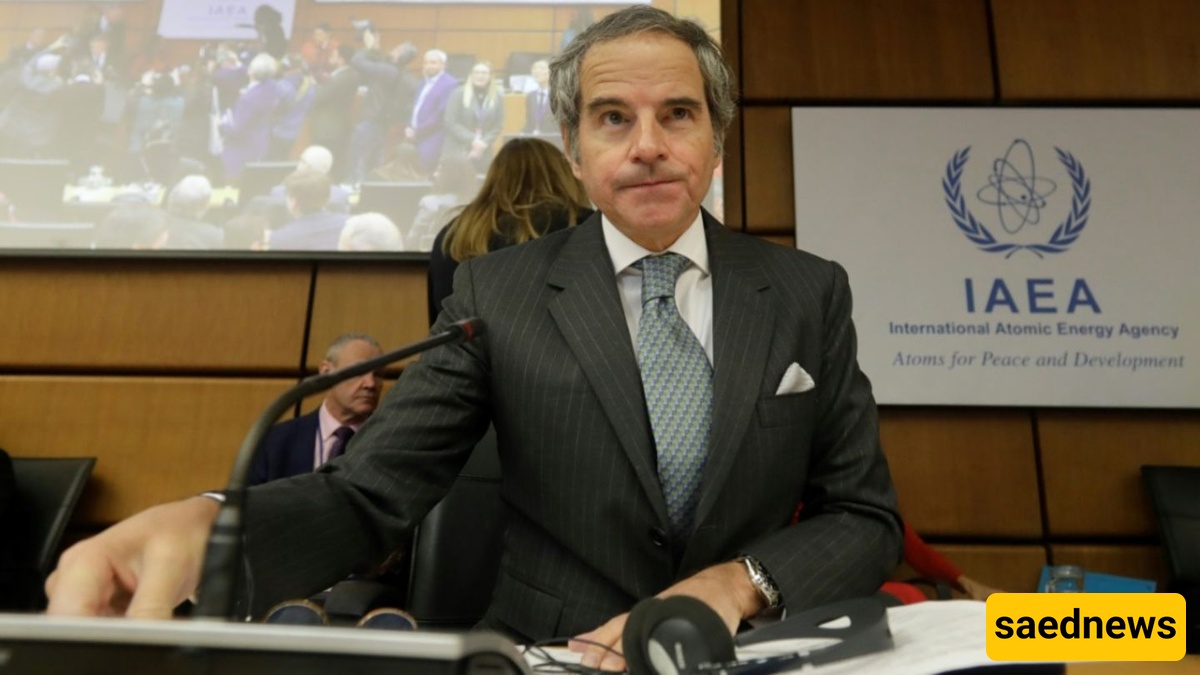SAEDNEWS: IAEA Director Rafael Grossi confirms the return of inspectors to Iran, stressing the importance of diplomacy while acknowledging that European snapback actions and recent attacks on nuclear sites complicate inspections and cooperation.

Rafael Grossi, Director General of the International Atomic Energy Agency (IAEA), told a U.S. network that the return of IAEA inspectors to Iran represents “the first step in the right direction.” Since the 12-day war and attacks on Iran’s nuclear facilities, cooperation had been suspended, as inspections during ongoing attacks were impossible.
Grossi told CNN: “Some feared that returning inspectors to Iran would be impossible or extremely difficult. The return is a good sign, although no specific agreement has been reached yet. We are currently negotiating modalities and technical steps to resume inspections. Iran has not withdrawn from the NPT, so all legal structures remain in place, but physical access is difficult due to severe damage to facilities in Fordow, Natanz, and Isfahan.”
Regarding the European Troika’s activation of the snapback mechanism, Grossi said: “Everything is intertwined. The negotiators are the same, only the negotiation table changes. We cannot dismiss the potential impact of Europe’s actions on Iran’s cooperation; the Iranians must respond to this question.”
The European Troika—Germany, the UK, and France—sent a letter to UN Security Council members activating the snapback mechanism to restore UN sanctions on Iran. Iran has stated that its response will be “severe.”
Kazem Gharibabadi, Iran’s Deputy Foreign Minister for Legal and International Affairs, emphasized that Europe claims to implement the JCPOA while indicators show they have not, and have imposed new sanctions on shipping and aviation. He warned that Iran will respond appropriately if Europe misuses Iran’s goodwill and triggers snapback, which would fully affect cooperation with the IAEA.
Grossi stated: “I have always sought a diplomatic solution. There is now a 30-day window to establish a suitable mechanism for inspecting Iran’s facilities and detecting enriched uranium, which could prevent broad sanctions from returning.”
He added: “The IAEA’s requests are purely technical. We inform the Iranians where we want to go, and they can respond if it’s impossible. I have discussed this seriously with the U.S. Secretary of State. The U.S. is not dependent on IAEA actions, but how can negotiations proceed without field awareness? Inspections must be conducted. Iranians may say some facilities are destroyed; we can verify. This helps all JCPOA members.”
Regarding accusations that the IAEA’s reports justified Israeli and U.S. attacks, Grossi said: “This claim is false. The agency does not authorize the use of force; my report simply repeated known events. Iran is not pursuing nuclear weapons.”
He added: “I have full support from the Board of Governors and act freely. Negotiations with Iran must continue. We believe in diplomacy and constructive outcomes for all, including Iran.”
On Iran’s enriched uranium stockpiles, he confirmed: “Many of these remain in their original locations, and Iran has verified the IAEA findings.”

